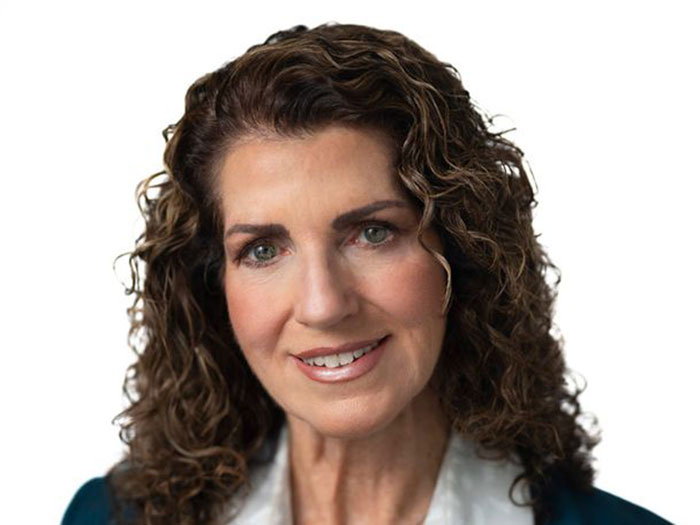13 Signs It’s Time to Fire Your Commercial Insurance Broker

As a risk manager, your commercial insurance broker is a key component of your overall success. A good broker is going to be an extension of your department and have a deep understanding of your industry and the individual needs of your company.
If your broker is falling short in any of the following areas, it might be time for a change.
1) Displaying a lack of insurance expertise.
You should be able to trust that your broker is advising you to purchase the correct coverage.
Your broker should be asking you thought-provoking questions and conducting an analysis of your risk during the insurance renewal process. You want to be able to trust that you have the broadest coverage terms available.
Your broker should be peer-reviewing your policies to make sure there are no coverage gaps or areas for improvement. Attention to detail and delivering on time is important.
2) Not having direct links and relationships with insurance markets.
The broker’s relationship with insurance markets will pave the way for you to have meaningful conversations and obtain competitive quotes.
They need to know the markets that have the most interest in your program and the most competitive pricing in your industry.
Your broker needs to be your advocate for negotiating policy terms and collateral. If you sense that your broker lacks any of these traits or connections, it’s time to start broker shopping.
3) There is a disconnect between the account executive/producer and the service team.
It’s important for your brokerage to have bench strength.
Service from your brokerage team extends beyond the annual insurance renewal, and the entire team needs to understand your industry and risks in order to properly service your account. It is important for your broker and team to ask relevant questions about your company so that they make sure they are providing you with the best insurance and service.
The broker should also support you and not inundate you with paperwork and procedures that they should be handling for you.
4) The customer service from your brokerage team does not meet your needs.
One of the most significant signs that your broker relationship needs reworking is the absence of regular and thoughtful customer service. The primary role of the broker is to add value to the client’s business by advising on matters of insurance and general risk management. That’s in addition to representing your company in the marketplace.
This means that your broker should be invested in your operations and how you approach the important issues. If your broker is not attentive to your needs, doesn’t provide valuable insights into your problems, or is generally apathetic to your account it may be time to make a change.
Accessibility and ease of doing business are important when it comes to risk management and insurance.
If you need to obtain a certificate of insurance or add insurance coverage to a new risk, you need an immediate response from your team to allow you to meet your needs. Anything short of that should raise red flags.
5) A lack of claims expertise.
When your company experiences a difficult claim, it is important to have a claims advocate in your insurance broker.
The claims advocate should be able to assist you with everything from interpreting the policy to fully understanding a reservation of rights letter issued by the insurance company. Your advocate should be able to assist you with the investigation of your claim and the reporting of it.
A broker who is a true claims advocate should also be keeping you abreast of jurisdictional changes. If your broker can’t check all of the above boxes, you are not getting the service you should rightfully expect.
6) Cloudy vision of emerging risks.
Your broker should be making you aware of emerging risks and educating you on the insurance coverage available to minimize your risk.
An emerging risk such as cyber security can be very complex when it comes to understanding available coverages. You should consider your broker’s process for identifying and quantifying those risks.
Your broker should be leading the way in encouraging insurance carriers to offer innovative products to meet your ever-changing risk profile. Data analytics and predictive modeling can also be great tools to the broker to share emerging risks and vulnerabilities you might have.
If you’re finding out about emerging risks before your broker is, the relationship isn’t doing you many favors.
7) Lack of specialized experience.
Your broker should have specialized experience globally to act as a consultant when the need arises. They should be providing global insight on an annual basis.
If you sense the waters of a particular risk are too deep for your broker to handle, it’s time to find a partner who can swim better.
8) Not offering you true coverage choices.
Your broker tells you they are shopping for the best coverage and price, but they walk in with the same company year after year. Loyalty to an insurance carrier has its place and can pay off in some ways.
But showing you the results of a widespread submission process is the only truly good sign that your broker is really working on and getting the best terms for you.
9) Last-minute renewal process.
A real no-no is if your broker is sending you a renewal application 30-60 days before the renewal. Generally speaking, they should be working on renewals at least 90 days out.
One award-winning risk manager said his property broker works on renewals about 120 days out. They do happen to be in Florida, which experience shows, can see wild fluctuations in property pricing from year to year.
10) Continuous Errors and Omissions.
Everyone makes mistakes, and brokers are no exception. However, if you notice significant inconsistencies between policy terms, or your insurance policies don’t match the binders issued by the carrier, you may have a bigger issue on your hands. The lack of attention to critical details can put your company in a bad spot when a claim arises, and there is nothing more frustrating than being faced with a problem that you don’t have the tools to fix.
11) Poor Market Results.
Nearly all brokerage firms sell on service and value added, but price still remains one of the driving factors in the consumer market. If you are consistently getting outbid on opportunities or you have feedback that your insurance isn’t competitive with your peers, there are two logical possibilities: 1) Your competition is carrying weak coverage and paying appropriately, or 2) your broker is not performing well in the marketplace on your behalf.
This can be tricky to address, as each business segment hits different pain points with certain underwriters and markets. It’s important to take advantage of any benchmarking studies your broker might offer, as this will give you a better idea of how much you’re paying in relation to your peers. If your broker is unable or unwilling to provide this, there are numerous other firms who have enough data to give you a reliable snapshot around pricing.
12) Being Late With a Binder or a Renewal.
Completely unacceptable, there is no excuse for this.
13) Limited availability.
If your broker is not available to you or doesn’t answer email after 5, or on weekends or holidays, you have problems. Claims happen at these times too! &
2019 Risk All Stars Donald Noel, Susan Shemanski and Dave Glasser contributed to this piece.











